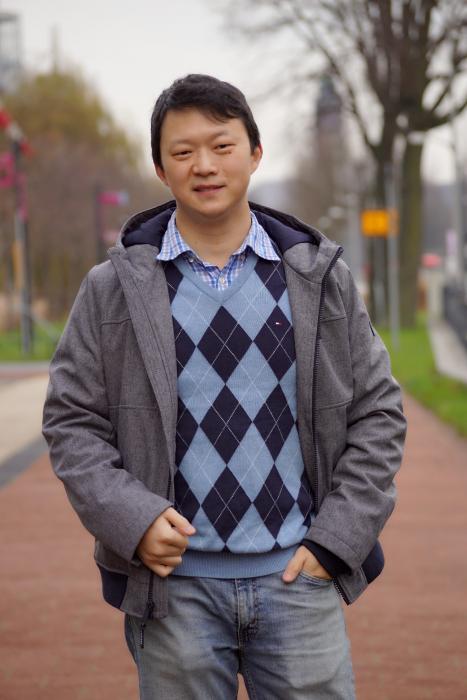News
VENI granted for Miniature and Sustainable Internet-of-Things
- Friday, 29 April 2022
The Dutch Research Council (NWO) has awarded a Veni grant worth 280,000 euros to Sijun Du, who is at the first place in ranking out of 169 pre-proposal applicants and 71 full-proposal applicants at the Applied and Engineering Sciences (AES) domain. Sijun Du is an assistant professor at the Electronic Instrumentation division, Department of Microelectronics. The grant provides him with the opportunity to further elaborate his own research idea on making future Internet-of-Things miniature and sustainable.
Project abstract
Making wireless sensor devices self-sustainable and small, with energy harvesting solutions and sub-mm dimensions, will be critical in future Internet-of-Things applications, e.g., in healthcare and smart-farming systems. However, current self-sustained devices are larger, with dimensions dominated by off-chip inductors. Removing these inductors can potentially decrease the system size by 99%, and pave the way to real-world implementations and commercialisation. This project proposes a new inductor-less architecture for energy harvesting systems. It achieves higher energy efficiency than conventional inductor-based systems, breaks the miniaturisation barrier, and enables fully silicon-integrated self-sustained wireless sensing devices for future Internet-of-Things.
Veni Talent Programme
Veni, together with Vidi and Vici, is part of the NWO Talent Programme (formerly: the Innovational Research Incentives Scheme). The Veni grant is one of the most prestigious grants for early-career researchers, and to be awarded is considered an important step in an academic career. NWO selects researchers on the basis of the quality of the researcher, the innovative character of the research, the expected scientific impact of the research proposal and possibilities for knowledge utilisation.
